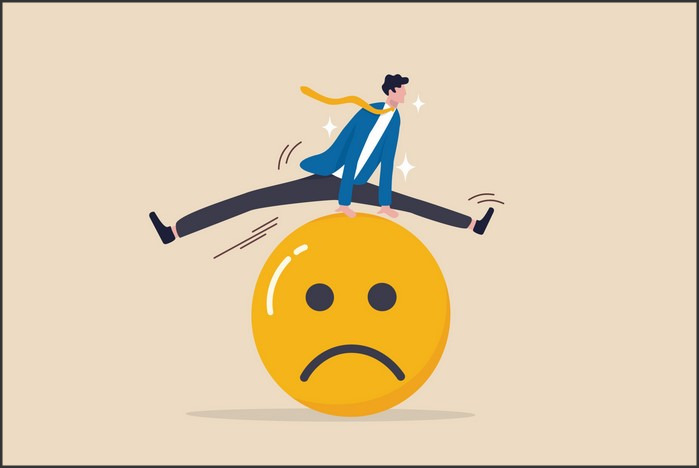
emotional regulation disorder (ERD) is a mental health condition that affects how a person manages their emotions. It is characterized by difficulty controlling emotions, leading to intense and prolonged emotional reactions. People with ERD may have difficulty managing their emotions in a healthy way, leading to problems in relationships, work, and other areas of life. ERD can be caused by a variety of factors, including genetics, environment, and trauma. It is important to understand the causes and symptoms of ERD in order to provide effective treatment and support. This article will provide an overview of ERD, including its causes, symptoms, and treatment options.
Exploring the Causes and Symptoms of Emotional Regulation Disorder
emotional regulation disorder (ERD) is a mental health condition that affects an individual’s ability to manage their emotions. It is characterized by difficulty in controlling emotions, such as anger, sadness, fear, and anxiety. People with ERD may have difficulty in expressing their emotions in a healthy way, leading to problems in relationships and other areas of life.
The exact cause of ERD is not known, but there are several factors that may contribute to its development. These include genetic predisposition, environmental factors, and psychological trauma. People with a family history of mental health issues may be more likely to develop ERD. Additionally, environmental factors such as poverty, abuse, neglect, and other forms of trauma can increase the risk of developing the disorder.
The symptoms of ERD vary from person to person, but some common signs include difficulty in controlling emotions, difficulty in expressing emotions, and difficulty in managing stress. People with ERD may also experience feelings of guilt, shame, and low self-esteem. They may also have difficulty in forming and maintaining relationships.
ERD can have a significant impact on an individual’s life, and it is important to seek professional help if you or someone you know is experiencing symptoms of the disorder. Treatment for ERD typically involves a combination of psychotherapy, medication, and lifestyle changes. Psychotherapy can help individuals learn to better manage their emotions and develop healthier coping strategies. Medication may also be prescribed to help manage symptoms. Finally, lifestyle changes such as regular exercise, healthy eating, and stress management can help individuals better manage their emotions.
How to Manage Emotional Regulation Disorder: Tips and Strategies
emotional regulation disorder (ERD) is a condition that affects an individual’s ability to manage their emotions. It can cause a person to experience extreme emotional reactions to everyday situations, making it difficult to cope with everyday life. Fortunately, there are a number of strategies and tips that can help individuals with ERD manage their emotions and lead a more balanced life.
1. Identify Triggers: One of the first steps in managing ERD is to identify the triggers that cause extreme emotional reactions. This can be done by keeping a journal and noting the situations that cause the most distress. Once the triggers are identified, it is important to develop strategies to manage them.
2. Practice Relaxation Techniques: Relaxation techniques such as deep breathing, progressive muscle relaxation, and guided imagery can help to reduce stress and anxiety. Practicing these techniques regularly can help to reduce the intensity of emotional reactions.
3. Develop Coping Skills: Developing coping skills is an important part of managing ERD. Coping skills can include problem-solving, distraction techniques, and positive self-talk. It is important to practice these skills regularly in order to be able to use them when needed.
4. Seek Professional Help: If the strategies mentioned above are not enough to manage ERD, it is important to seek professional help. A mental health professional can provide guidance and support to help individuals manage their emotions and lead a more balanced life.
By following these tips and strategies, individuals with ERD can learn to manage their emotions and lead a more balanced life. It is important to remember that managing ERD is a process and it may take time to find the right strategies that work for each individual. With patience and dedication, individuals can learn to manage their emotions and lead a more fulfilling life.
Conclusion
emotional regulation disorder is a complex and often misunderstood condition that can have a significant impact on an individual’s life. It is important to understand the causes and symptoms of this disorder in order to provide effective treatment and support. With the right help and support, individuals with emotional regulation disorder can learn to manage their emotions and lead a more fulfilling life.